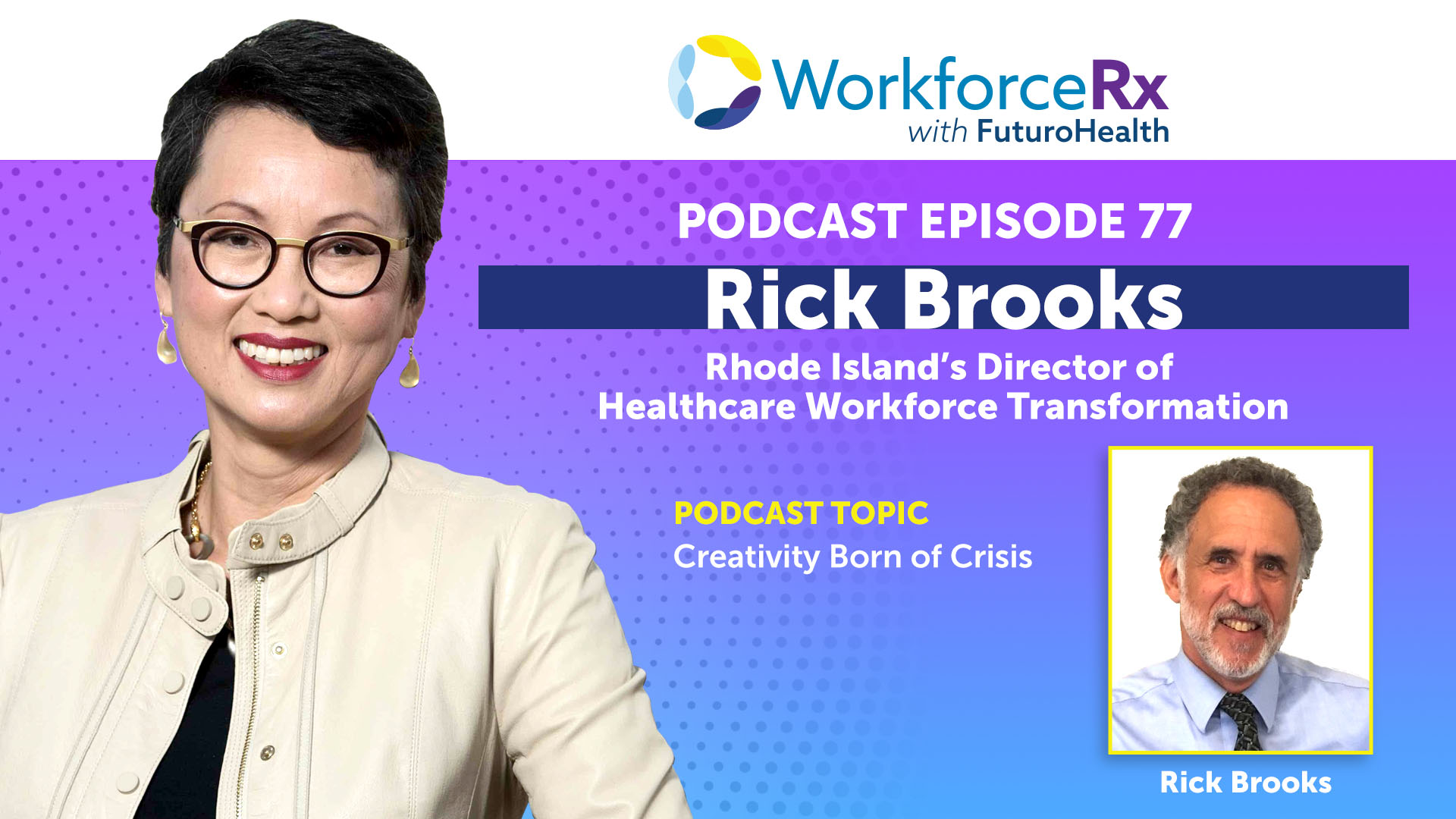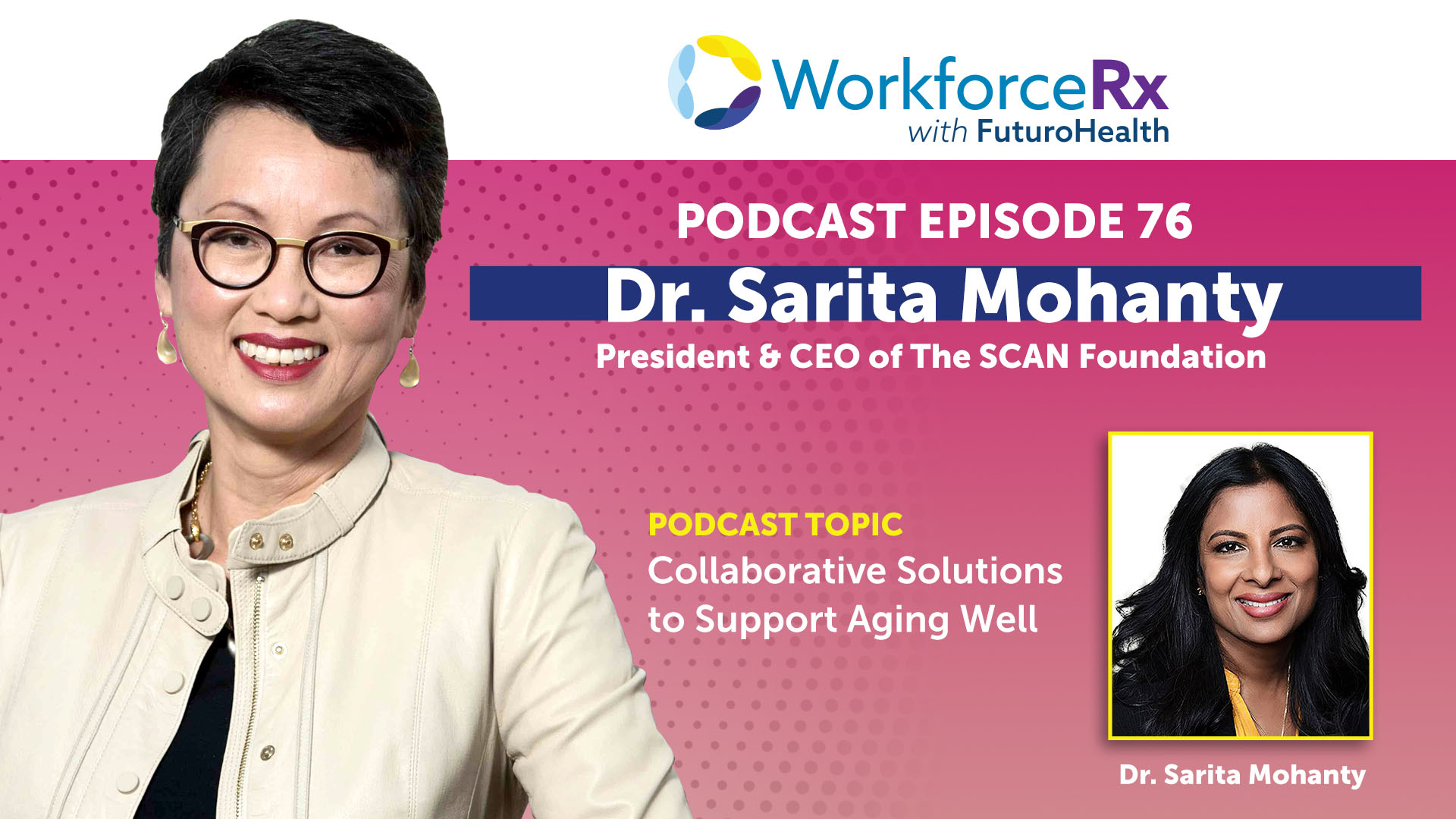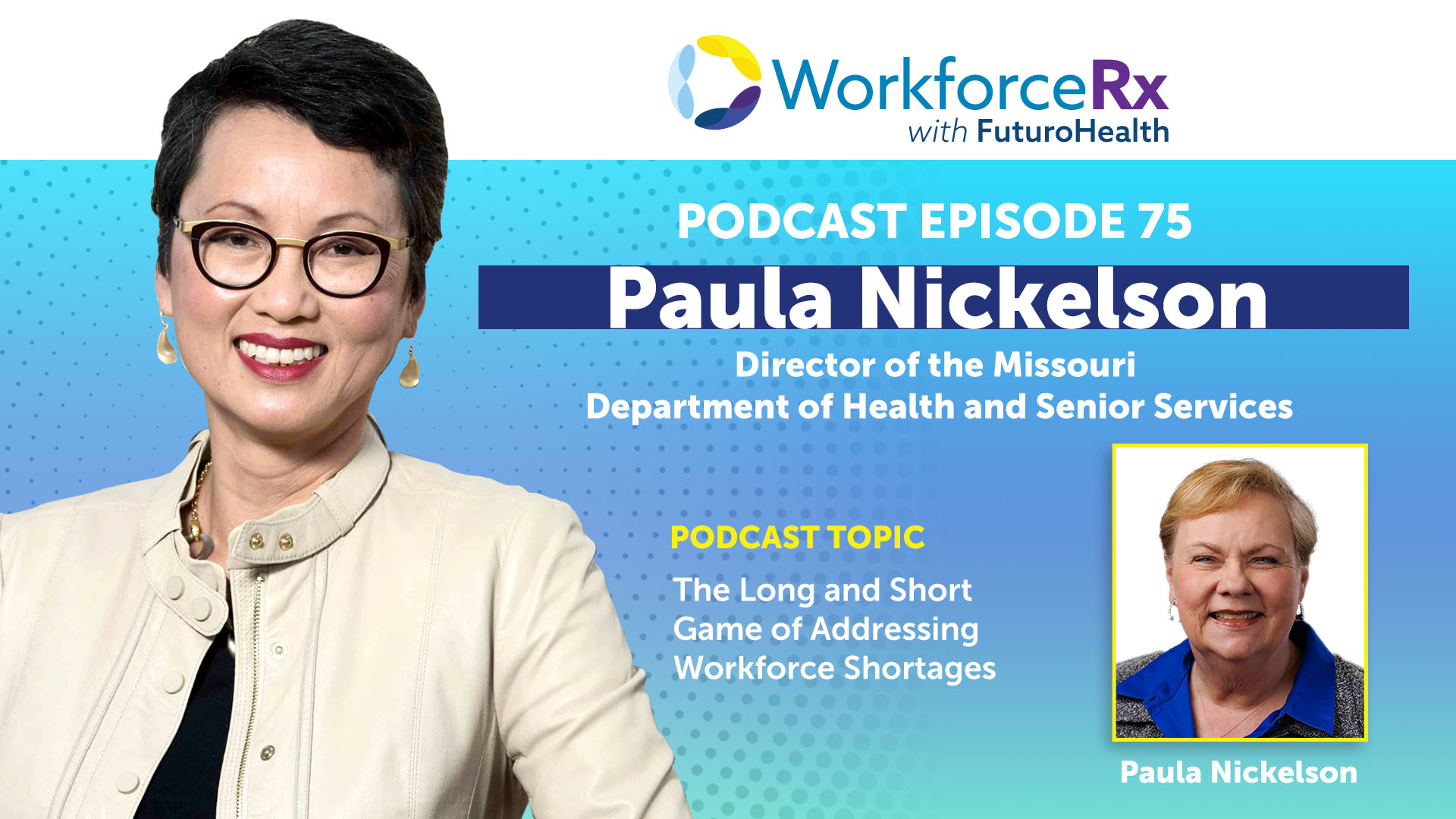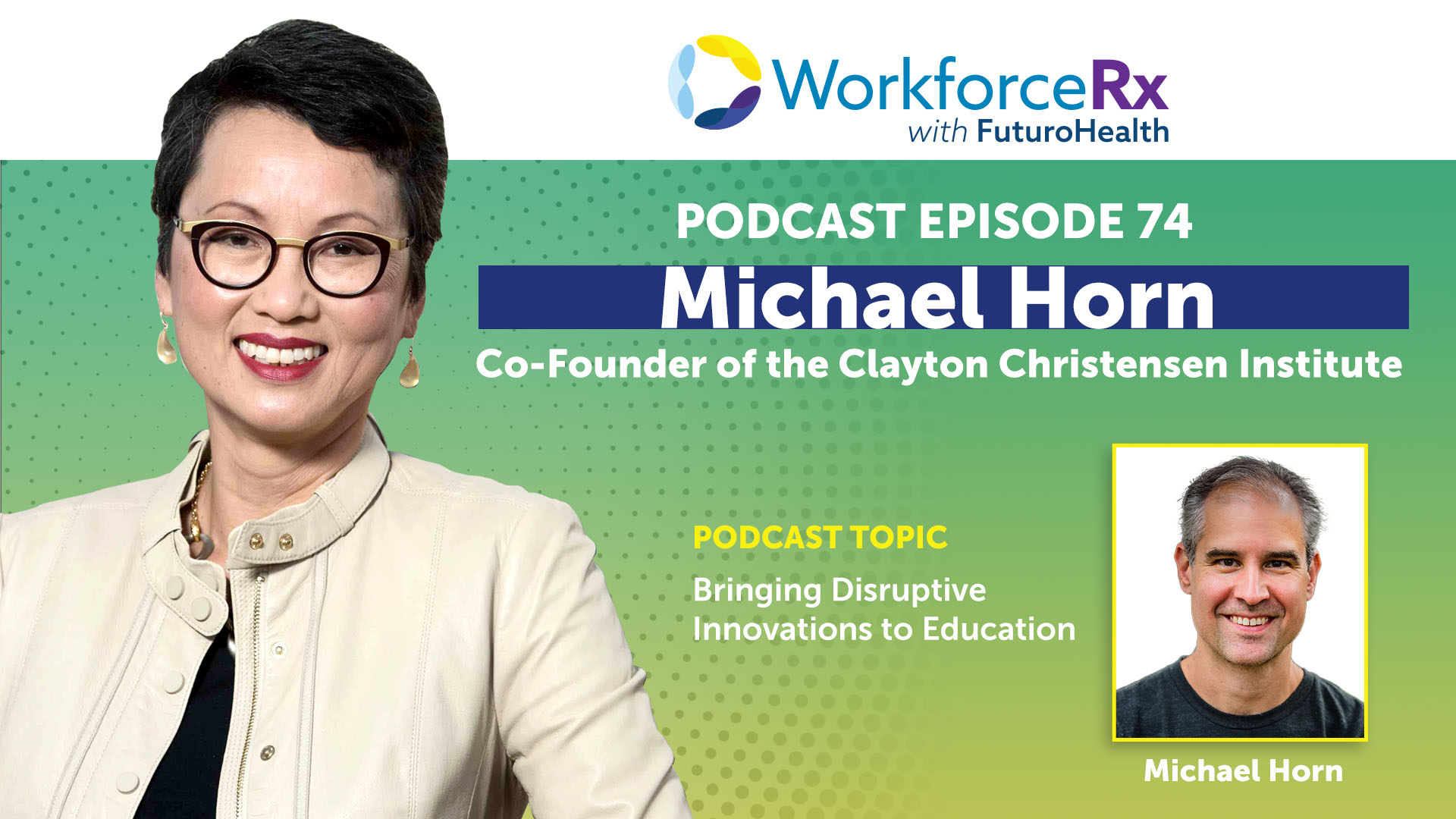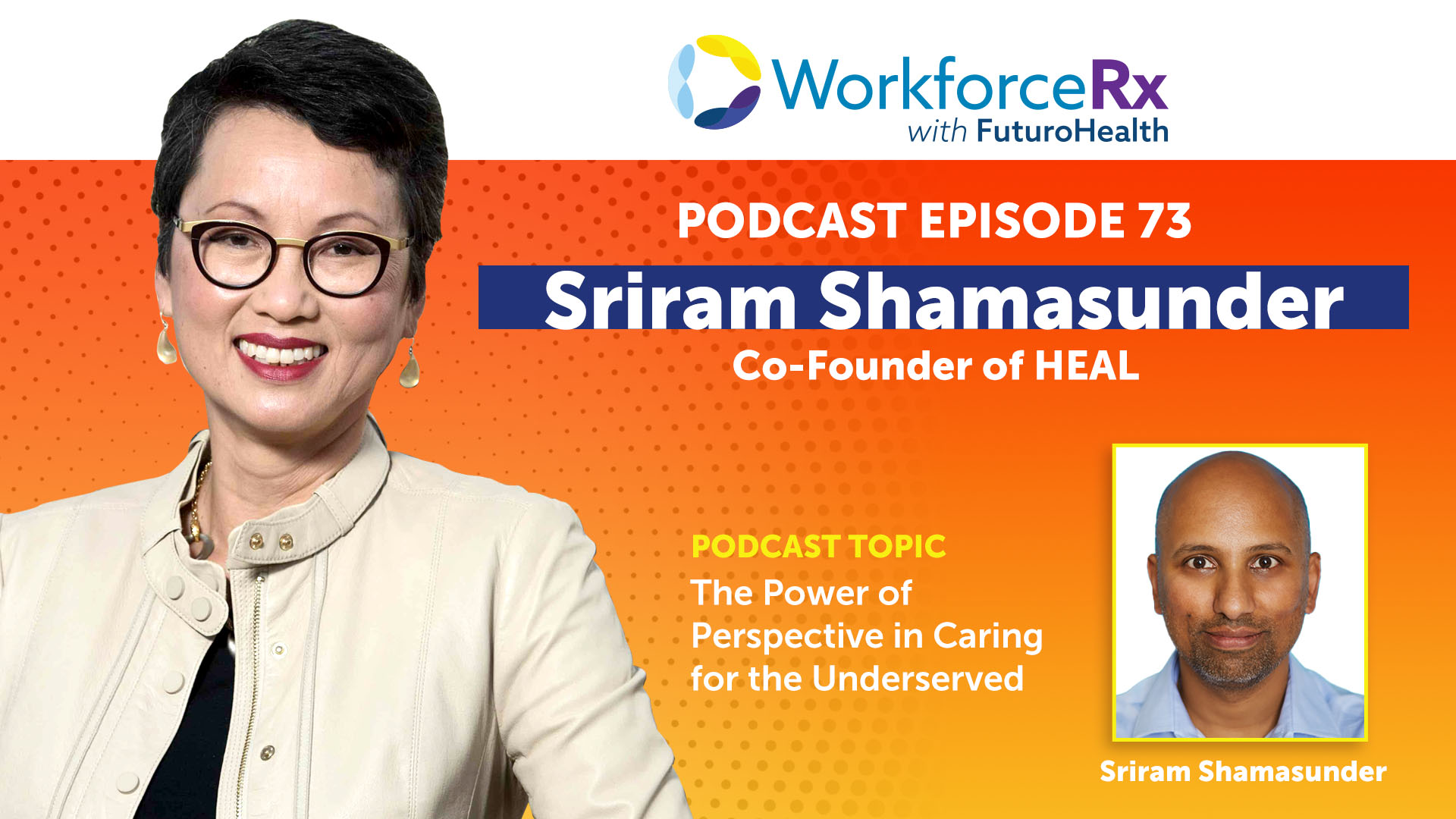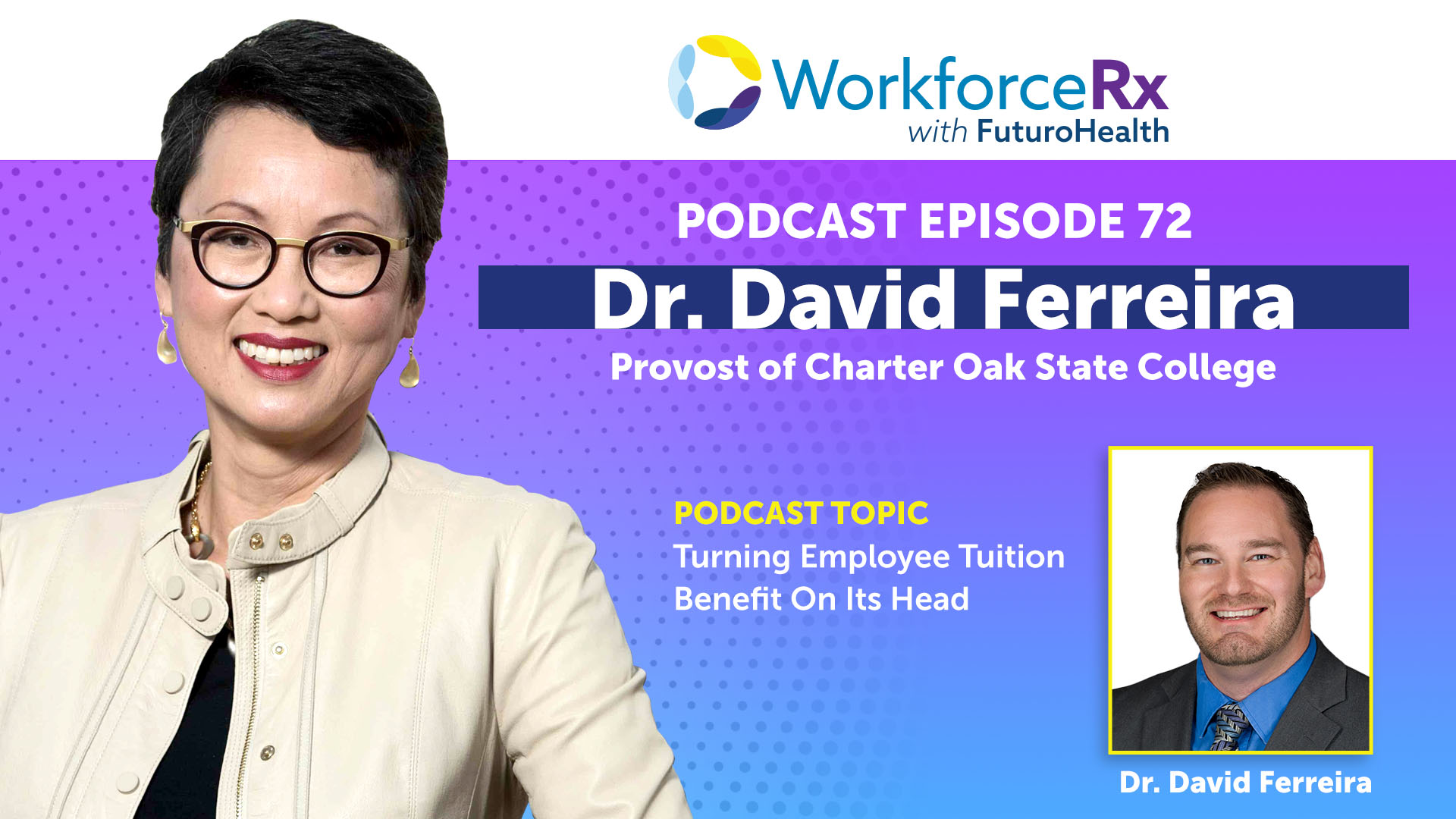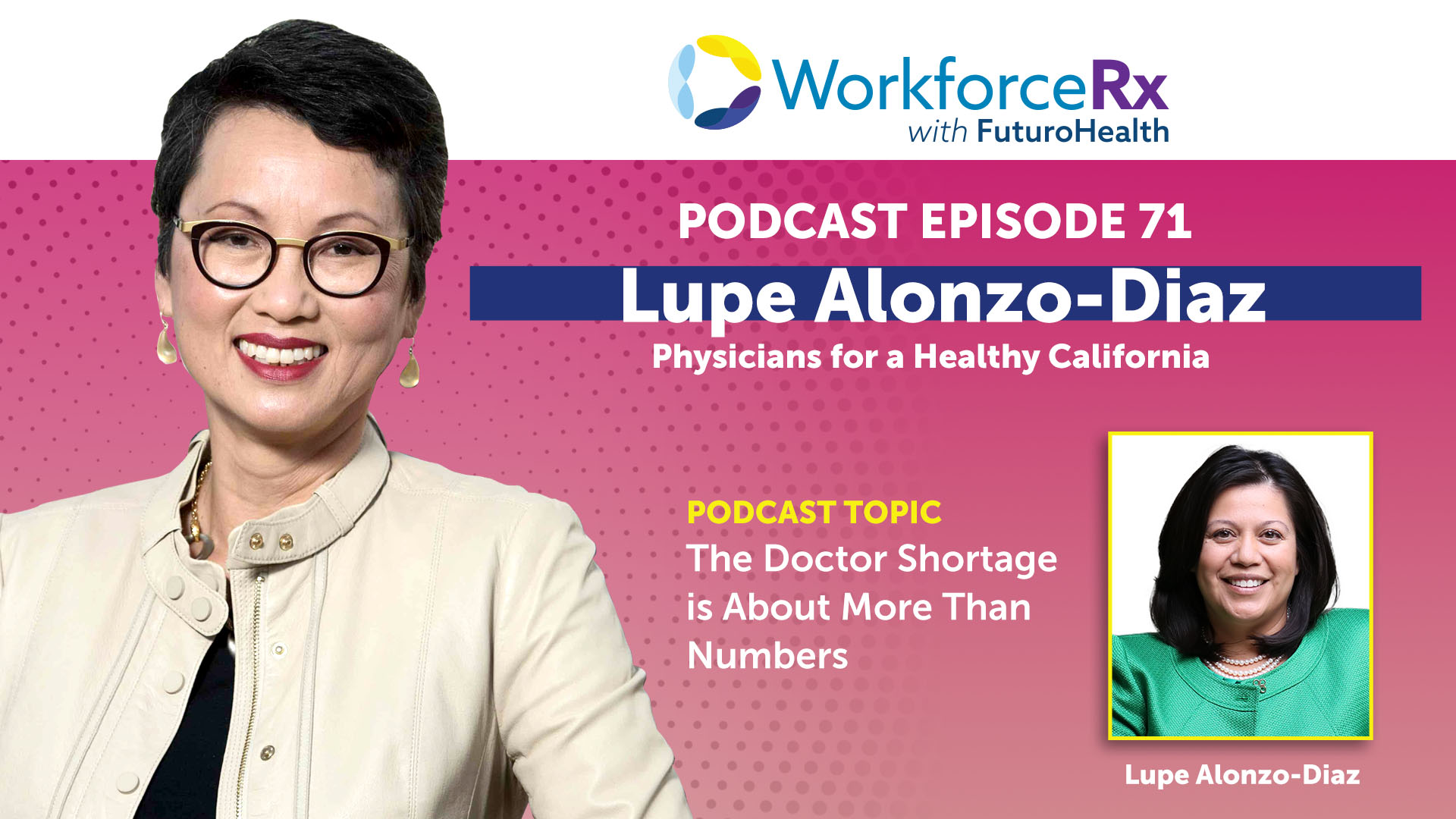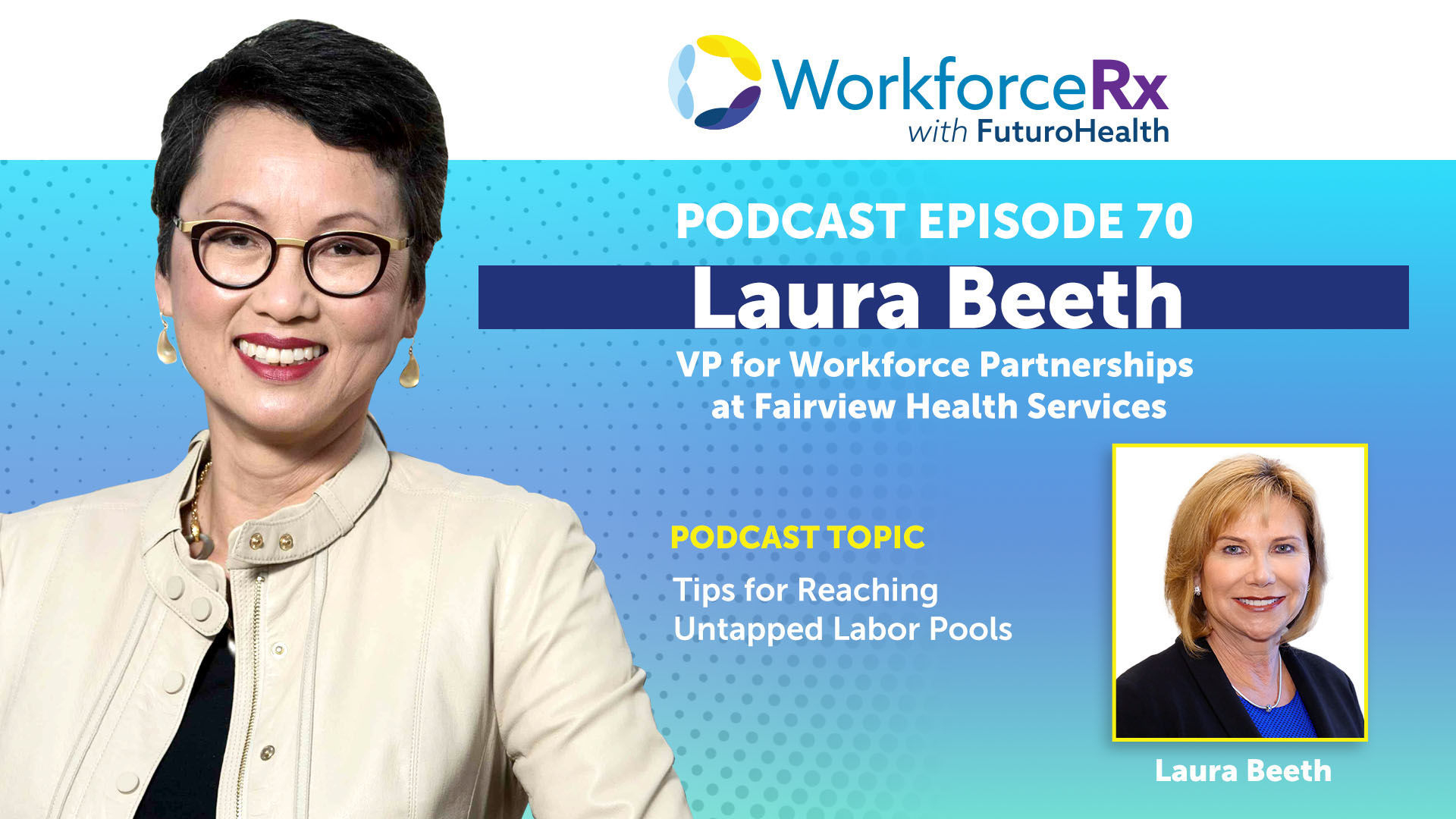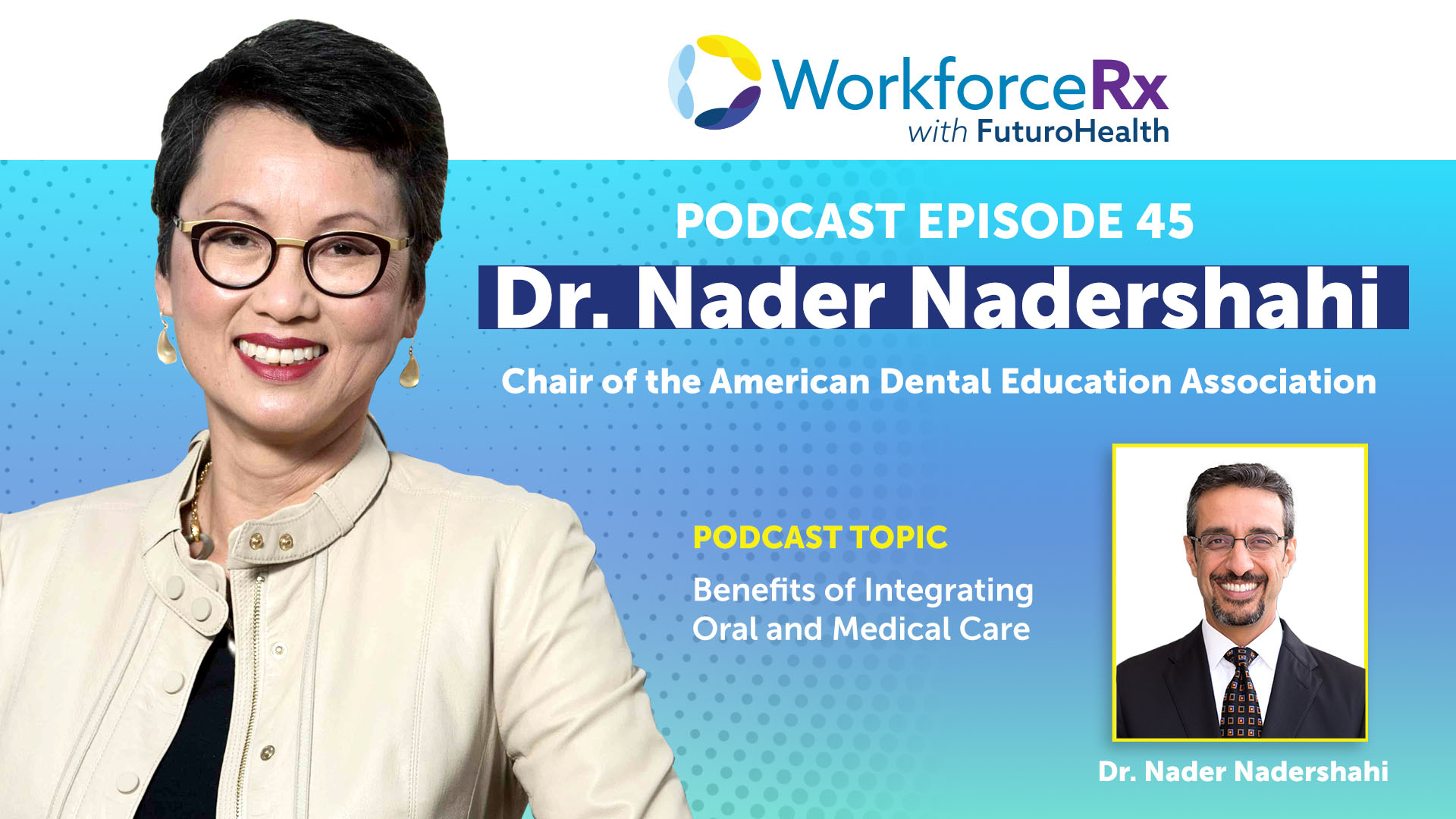“Because of the workforce shortages, there is more creativity and more willingness to be innovative, and I think we can make something out of this crisis,” says Rick Brooks, who has his hands full leading Rhode Island’s efforts to strengthen and grow the healthcare workforce. His optimism is based on new levels of engagement by key stakeholders to find solutions and the formation of some unlikely collaborations to bring them to life. “For example, there are partnerships happening between higher education programs that have traditionally viewed each other as competitors to develop agreements that grant credits for non-credit activities,” he tells Futuro Health CEO and WorkforceRx host Van Ton-Quinlivan. He also cites licensure boards being open to rethinking education requirements for nursing faculty and the recredentialing of foreign trained health professionals, and other signs of innovation. In this expansive conversation, Brooks, a veteran labor educator, advocate and leader, shares strategies and insights on a wide array of issues including loan repayment programs, expanding clinical placement opportunities and redesigning career ladders with more, and more achievable, rungs so that people can stay in the healthcare field. It’s an impressive menu of options that might just inspire some creative thinking of your own.
Continue readingDr. Sarita Mohanty, President & CEO of The SCAN Foundation: Collaborative Solutions to Support Aging Well
The growing crisis in homelessness across the US has understandably garnered a lot of news coverage and attention from policymakers, and today’s WorkforceRx guest wants to make sure one key facet of the problem is not overlooked as solutions are discussed. “There’s a lot of over-representation of older people in the homelessness rates, and older Black Californians — and this is a staggering statistic — are five times more likely to become homeless than their white counterparts,” says Dr. Sarita Mohanty, president and CEO of The SCAN Foundation, whose work is centered in the nexus of age, poverty and equity. As one of the largest foundations in the US focused on improving the quality of health and life for older adults, The SCAN Foundation supports a wide variety of initiatives to address the complex factors preventing many Americans from aging well. On this episode, Dr. Mohanty shares some positive notes with Futuro Health CEO Van Ton-Quinlivan about statewide efforts in California that include expanded Medicaid access, moves to professionalize the home care workforce and the formation of Master Plans of Aging (MPA) at the state and local level. “There are some important areas of need that these MPA stakeholders are identifying and then they’re actually advocating at a policy level to get these addressed.” Stay tuned for many more examples of cross-sector collaborations that are accelerating solutions to this critically important problem affecting Americans of all ages.
Continue readingPaula Nickelson, Director of the Missouri Department of Health and Senior Services: The Long and Short Game of Addressing Workforce Shortages
State departments of health play a huge role in America’s healthcare system, with responsibility for public health, licensure, public policy, and much more, so the workforce challenges they face have broad implications. “It will probably be twenty years before we really begin to bend the curve because many of the workforce shortages we encounter require very long-term strategies to change,” says Paula Nickelson, Director of the Missouri Department of Health and Senior Services. Expanding slots for physician residencies and training opportunities for Certified Nursing Assistants are just two of the steps being pursued. Student loan reform, synching up higher ed with the needs of employers and better data management are also on her list but, as she tells Futuro Health CEO Van Ton-Quinlivan, Nickelson thinks these types of changes will not improve healthcare as much as a major shift toward prevention would. “We will never change our health indicators in a positive way, nor will we get out of the escalating spiral of acute care costs and long-term care costs, until we invest in public health and prevention.” This episode of WorkforceRx promises an insightful state-level perspective on workforce and health system challenges confronting the entire nation.
Continue readingMichael Horn, Co-Founder of the Clayton Christensen Institute: Bringing Disruptive Innovations to Education
“If I looked at higher education writ large, as we’ve traditionally defined it, I’d say that the patient is sick right now,” says Michael Horn, a prominent national voice on reimagining education at both the K-12 and post-secondary levels. Horn sees a misalignment between education consumers who are seeking greater value, and education suppliers — especially brick-and-mortar institutions — who have not found a way to manage high cost structures and offer more flexible, lower cost, online options. And, as he explains to Futuro Health CEO Van Ton-Quinlivan, online offerings won’t be a solution either unless they are carefully designed around student outcomes, how to teach the material effectively and how to measure if students are actually learning it. “Technology can be a really useful enabler of assessment, of feedback and of delivering customized curriculum, but it’s not about the use of technology for its own sake.” Among Horn’s other prescriptions are getting schools to focus more on improving learning models, and moving to a competency-based approach. Don’t miss this opportunity to hear one of the foremost thinkers on education reform address a wide array of issues from organizational model change, to addressing learning loss and social-emotional deficits, to new learning options in higher education. Be sure to stay tuned for a sneak peek at Horn’s new book due out next year which focuses on how to develop a deeper sense of what you’re looking for when changing jobs or careers.
Continue readingDr. Sriram Shamasunder, Co-Founder of HEAL: The Power of Perspective in Caring for the Underserved
Doctors who realize that creating a local jobs program can be as important to helping their patients as writing a prescription have the kind of broad perspective that today’s WorkforceRx guest wants all health providers to adopt. “I think that context is oftentimes lost on providers in medical school or nursing school where they’re not connecting the patient to the entire context of their lives,” says Dr. Sriram Shamasunder, the co-founder of the Health Equity Action and Leadership initiative at UC San Francisco. The idea for HEAL grew out of global public health work Shamasunder had done himself in which he felt like he didn’t understand all of the factors impacting his patients’ health status — what he calls the structural determinants of care. “That requires mentorship. It requires the correct curriculum…kind of reorienting what medical education is,” he tells Futuro Health CEO Van Ton-Quinlivan. Each class of HEAL Fellows includes a mix of doctors from the US, Navajo Nation and the Global South. “It’s this really incredible learning community where for two years, they’re doing clinical work and project work to become better advocates and better leaders.” Tune in for a thoughtful look at using medicine as a way to establish trust in resource-denied communities and how HEAL is a potential solution to address vacancies in Native communities.
Continue readingDr. David Ferreira, Provost of Charter Oak State College: Turning Employee Tuition Benefit On Its Head
Although most US employers offer some form of tuition assistance, it’s estimated that less than 5% of employees use the benefit. There are several reasons for this, but according to Dr. David Ferreira, provost of Charter Oak State College, paying the upfront cost of tuition is high on the list. “Fifty-seven percent of Americans have less than $1,000 in their savings account. They cannot commit to an upfront tuition cost especially if they’re living paycheck to paycheck,” he tells Futuro Health CEO Van Ton-Quinlivan. Inspired by an idea outlined in Van’s book WorkforceRx: Agile and Inclusive Strategies for Employers, Educators and Workers in Unsettled Times, Ferreira and colleagues decided to turn the traditional tuition reimbursement model on its head and adopt a disbursement model instead in which employers pay the upfront cost and get reimbursed through a federal tax credit for employee tuition benefits. He calls it a ‘win-win-win’ approach. “There’s no money out of pocket for the employee, there’s no cost on the employer side because they’ll be reimbursed, and Charter Oak is going to get more students.” In working to sign-up employers as the new Charter Invest program rolls out, Ferreira is also highlighting that it will help companies with the important goals of employee retention and diversifying their workforce. Get all the details, learn about the program’s ‘all you can eat’ design, and find out how employers are reacting to the idea in this eye-opening conversation.
Continue readingLupe Alonzo-Diaz, Physicians for a Healthy California: The Doctor Shortage Is About More Than Numbers
Like all states, California is facing a shortage of physicians — in its case a gap of 10,500 by the end of the decade — but today’s WorkforceRx guest says the definition of shortage needs to go beyond just numbers to include their practice location and cultural diversity. “Oftentimes, we don’t have enough access to physicians in particular areas or to culturally dynamic physicians,” says Lupe Alonzo-Diaz, president and CEO of Physicians for a Healthy California. As she explains to Futuro Health CEO Van Ton-Quinlivan, PHC tackles the issue by expanding physician training opportunities in underserved areas and by incentivizing early career physicians and dentists to accept Medicaid patients through loan forgiveness. “Those physicians come from geographically underserved communities. They also speak a second language and they’re committed to staying in those communities after they finish their service obligation.” This engaging conversation also explores addressing social determinants of health, trends in team-based care and previews a new report on how physicians who are women of color fared during the pandemic. “Women physicians of color are such a key core component to how we deliver culturally dynamic quality care and we need them to stay in their profession and continue to advance.”
Continue readingLaura Beeth, VP for Workforce Partnerships at Fairview Health Services: Tips for Reaching Untapped Labor Pools
In the struggle to fill ongoing gaps in healthcare staffing, the days of waiting for people to apply for openings are over, says human resources veteran Laura Beeth. “We’re going out deeply into the communities, especially communities with high social determinants of health, and really working partnerships to help them move into healthcare careers,” says the vice president for Workforce Partnerships at Fairview Health Services, which is the second largest private employer in Minnesota. Beeth tells Futuro Health CEO Van Ton-Quinlivan that hiring officials need to start meeting people where they are at in their careers instead of passing them over if they don’t meet all of the specific qualifications. “There is space for everyone. Let’s figure out if it’s a perfect match. If not, let’s find out what they can do in our organization. That’s the kind of flexible mindset we need.” This conversation is loaded with useful strategies and insights on leveraging learn-and-earn programs, re-credentialing new Americans with healthcare backgrounds, reducing employee education costs, building employee loyalty and diversifying your workforce. Tune in for a valuable dose of hard-earned wisdom from the woman known as ‘the godmother of healthcare workforce development.’
Continue readingDr. Tom Mitchell, Carnegie Mellon University: The Impact of AI on the Future Workforce
When it comes to the impact of artificial intelligence on the workforce, there is still a major split between those who worry about “robots” replacing workers, and those who think employees will benefit from AI if it is harnessed the right way. On this episode of WorkforceRx, Futuro Health CEO Van Ton-Quinlivan asks one of the world’s leading experts in the field, Dr. Tom Mitchell of Carnegie Mellon University, to weigh in on the debate. “The big determinant of how the future of work is going to play out is how we develop these technologies, and how we choose to adopt them. Do we adopt computers as assistants that allow people to do their job better, or do we use them to automate the task? The future is really ours to define.” Mitchell is currently updating a 2017 U.S. National Academy study on AI and the workforce at the request of Congress, and provides us with a peek into what has changed in the intervening years with regard to remote work, online learning, self-driving cars and the speed with which the field of AI itself is changing. Don’t miss this penetrating look at one of the most disruptive technologies of our time.
Continue readingDr. Nader Nadershahi, Chair of the American Dental Education Association: Benefits of Integrating Oral and Medical Care
There’s growing interest in the integration of oral healthcare with medical care, and there’s good reason: about 30 million Americans who visit their dentist annually do not have similar contact with a primary care provider. Our guest on this episode of WorkforceRx, Dr. Nader Nadershahi, says this presents a tremendous opportunity for an additional way to identify problems such as diabetes and heart disease in patients. “The mouth is the window to the rest of your body,” he tells Futuro Health CEO Van Ton-Quinlivan. “The more we bring providers together and put the patient at the center of the conversation to get them the care and the access they need, it’s going to help not only improve healthcare outcomes, but lower our costs of healthcare delivery.” This collaboration will require shifts in how oral healthcare providers are educated, and Nadershahi will have a significant influence on that as Chair of the Board of the American Dental Education Association and Dean of The University of the Pacific Arthur A. Dugoni School of Dentistry. Tune into to find out more about the emerging possibilities of interprofessional practice, the workforce challenges in the field of dentistry, and the future of oral healthcare education.
Continue reading
